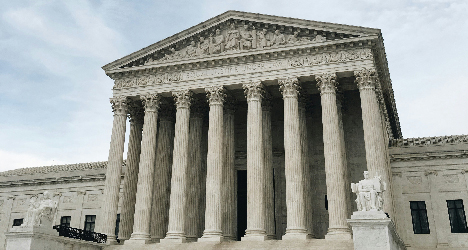Your colleagues in the newsCheck out the top-reaching stories of academic impact in traditional media. Metrics draw from English-language print, broadcast and online global media outlets. | Top stories (Jan. 30-Feb. 5) |
-
Tim Franklin and Zach Metzger’s research on the closure of local news outlets is cited as The Star-Ledger, New Jersey’s paper of record, shifts to an online-only business model. The study was cited in 42 stories for a reach of 10.3 million. Top outlets include The New York Times, Forbes and CBS News.
-
Kevin McTigue studies how marketing messages, especially AI-related ones, impact consumer perception for the Super Bowl. McTigue was cited in 61 stories for a reach of 5.4 million. Top outlets include Marketplace and National Public Radio.
-
Dr. Melinda Ring and Maria Luisa Savo Sardo discover juicing disrupts gut microbes, boosting harmful bacteria linked to cognitive decline. Ring and Sardo were cited in 25 stories for a reach of 4.3 million. Top outlets include Psychology Today and Health.com.
*To allow time for data processing and validation, the reporting period for top stories and quantitative media metrics runs Thursday-Wednesday. |  |
| In the Spotlight | Read in-depth coverage of Northwestern work and research. |  From USA Today The Supreme Court is set to hear a case that could remove the requirement for insurers to cover PrEP, an HIV-prevention drug, under the Affordable Care Act. Feinberg’s alithia zamantakis argues that stigma against PrEP is rooted in homophobia, racism and transphobia, telling USA Today that PrEP is more cost-effective than lifetime HIV treatment.
|  From Popular Science McCormick’s Horacio Espinosa studies how mantis shrimp’s club structure filters out damaging shockwaves from their powerful punches, protecting their bodies and offering potential for new protective materials. Espinosa tells Popular Science that future research should focus on more complex 3D simulations to fully capture how the club’s structure interacts with shockwaves. |  From Business Insider Donald Trump’s executive order to rename the Gulf of Mexico to the “Gulf of America” is sparking international debate, with Google adopting the change but Mexico pushing back. Weinberg’s Ian Hurd tells Business Insider that countries can rename geographic features within their own jurisdiction, but there is no formal body that decides global place names, making such renaming a political rather than legal issue. |
| NU Voices | Read perspectives from Northwestern faculty in national media. |  From Carl Smith, The Washington Post “Nesting in her crown is the indomitable phoenix, the mythical emblem of continuous rebirth from the ashes, spreading its wings as it yet again takes flight,” Weinberg’s Carl Smith writes in The Washington Post. |  From Mohammad Hosseini, Chicago Tribune “From a business and financial point of view, losing clientele to DeepSeek should be investigated systematically with a view to understanding user needs, and scapegoating will never help this process,” Feinberg’s Mohammad Hosseini writes in the Chicago Tribune. |
| About | This weekly newsletter serves as a resource for faculty and communications staff, sharing news opportunities and highlighting faculty and University successes in traditional media. It also provides communications tools such as media training resources and announcements about upcoming sessions.
By providing these resources, we hope to help faculty show their expertise to a national and international audience as well as recognize those who are making an impact.
We welcome your feedback on this and all of our communications tools. You can reach us any time at media@northwestern.edu.
Subscribe to Northwestern in the Media. |
|
|





